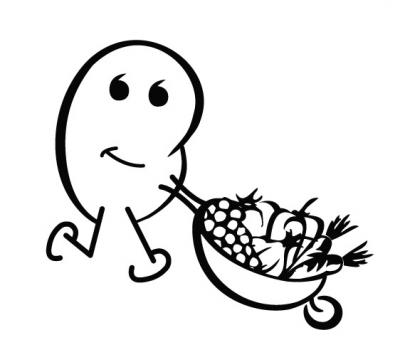 Rob M.
Rob M. | Surviving the Summer Heat
Aug 2, 2011 at 5:07 pm |
This summer in North Carolina has been one of the hottest in recent years. According to the Daily Beast, Raleigh has experienced 54 hotter than normal days since June 1st. The average temperature in June was 5.7 degrees higher than usual and 3 degrees higher than usual for July. Hot temperatures are uncomfortable for everyone, but can have an especially large impact on agriculture. We asked a few of our growers what the hot summer has meant for them and their operations.
One of the biggest and most detrimental effects that the heat has had on growers is a reduction in crop yields. Robbie Cox of Cox Farms says there is a temperature threshold that most crops need to stay under to remain productive. While temperatures in the low 90's and plenty of sun can be great for crop productivity, when those temperatures start creeping above 95F, the plants quickly start shutting down. Robbie says his zucchini and yellow squash will stop pollinating when temperatures rise above 95 degrees. If the plants do not pollinate, the fruit (the squash) will stall and eventually die. The recent string of 95+ days has actually resulted in a bit of a shortage on summer squashes in the area, especially yellow squash. Local market prices on yellow squash are currently up about 33%. Shari Penland of Fox Hollow Farm, says that she has had a similar experience with reduced yields this summer. She says that the plants tend to produce fewer blossoms, and the fruits ripen much faster. Fast ripening fruit tends not to grow as big, so they end up with fewer, smaller fruits and veggies per plant - i.e. lower overall yield.
Lower yields and productivity have also had an effect on local ranches. Dianna Osmolski of Green Acres Ranch recently said that they have been running low on hay for their grass-fed cattle. The high temperatures and limited rain have made it difficult and slow to grow more, so they are running low on their reserves from the spring and winter. High temperatures have also been slowing down local pasture raised hens. Shari Penland says that her hens have been much less active recently, "They spend most of the day under the trees in the shade and giving themselves dust baths. They also slow down or quit laying eggs." Shari's egg production is down to about 25% of where it was a couple of months ago.
Another big impact of the heat is increased pest activity. Todd Dumke of Eastern Carolina Organics explained that when temperatures rise and the ground dries out, insects start to go after vegetables and berries more actively to find the moisture that isn't available elsewhere. Pests like stink bugs will often locate a row of tomato crops, and suck out a small bit of moisture from the fruit. This leaves a weak point on the fruit, that can either ruin it while it sits on the vine, or can increase deterioration once picked.
While pests and reduced yields seem to be a common hassle of high summer heat, irrigation was surprisingly less of a concern for our growers. That's not to say that irrigation is not a big part of summer farming, but it seems that most growers have figured out a good system that works for them, even when temperatures rise up into the 100's. Robbie Cox and Gary Wise, for example have invested in drip irrigation lines. This means that their crop rows are lined with irrigation tubes that feed just the right amount of water down to the roots of each crop. While it can be a costly initial investment, drip irrigation is especially efficient in providing even, constant watering, while limiting excess and potential for runoff and loss through evaporation. Other, smaller scale growers like Shari Penland and Ben Greene of The Farmery say that their hydroponic growing systems take care of most of their irrigation concerns. Ben actually said that hot temperatures are not a big issue for him, "I think my problems have been mostly my fault and my lack of experience. The weather is usually not a big deal with my system because "rain" is on a 15 minute timer every hour, and the water trickling down cools my greenhouse pretty well. The only thing is that if a watering valve gets clogged, I only have about 8 hours to find it before I lose that plant because of the heat!"
This summer has definitely been a hot one, and with highs close to 100F again this week, the end is still far from sight. While the heat can be tough for local growers, everyone seems accept it as part of the life and stays optimistic. Of a small rain shower received over the weekend, Shari Penland happily states, "We are getting our 3rd little rain shower this week. It is such a blessing. Thank you, Lord!" | |